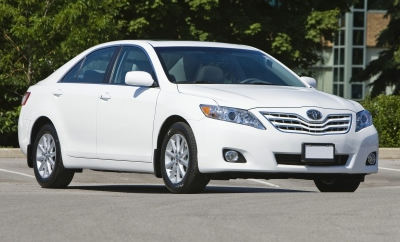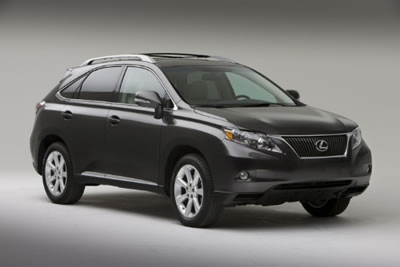|

Another Unintended Acceleration Bugaboo Bites the DustBy Jim Bray Now that the Obama regime has admitted there were no electronic problems behind Toyota's supposed unintentional acceleration incidents over the past couple of years, do you think Congress will apologize to Mr. Toyoda? I, for one, am not going to hold my breath. I haven't noticed the same type of coverage that was given to the original story, either. Last year, when the Japanese company was dragged through the mud in a much ballyhooed Congressional show trial, it was all over the media. Now that Toyota has been exonerated, the stories I've seen were mostly relegated to automotive of lifestyle-type sections. You'd think the government giving Toyota a clean bill of health would deserve the same coverage as the earlier kerfuffle got. Before I go on, I must offer full disclosure: I once sold – well, tried to sell (I wasn't very good at it!) – Toyotas and have owned four over the years, all of which were excellent cars that served my family well. My only real complaint about Toyota is that their products have been getting a bit blander than I like lately. But they're excellent vehicles, neither the dangerous crap nor the greatest things on wheels since the wheel that some might imply, and it would take a lot more than this unintended acceleration controversy – where the evidence was vague at best – to make me afraid to drive one. And now it appears the U.S. Transportation Department agrees. After a 10 month study of Toyota vehicles, according to Fox News, the Department concluded there was "No electronic cause of unintended high-speed acceleration in Toyotas. The study, which was launched at the request of Congress, responded to consumer complaints that flawed electronics could be the culprit behind Toyota's spate of recalls." Last year, you may remember, Toyota recalled millions of vehicles worldwide and ended up paying (or is the term more properly described as "being extorted of") nearly 50 million dollars in fines. I wonder if they'll get a refund now. As it turns out, the unintended acceleration problems weren't Toyota's fault for the most part. We know this because the National Highway Traffic Safety Administration looked into consumer complaints and warranty data and, according to the same Fox News story, concluded that "In many cases when a driver complained that the brakes were ineffective, the most likely cause was 'pedal misapplication,' in which the driver stepped on the accelerator instead of the brakes." In other words, it was operator error. Who'd have thunk it. Once again, the problem was not the nuts and bolts (or circuits), but "the nut behind the wheel", raising the issue once again of driver education and skills – or lack of same – and how, in my never humble opinion, if there were better drivers on the roads, a lot of the problems on today's highways would take care of themselves. Backing up the NHTSA's conclusion were NASA tests. Fox says NASA "rigorously examined" nine Toyotas that had been driven by consumers who complained of unintended acceleration. The space agency also pored over some 280,000 lines of software code (which must be one heckuva task!), looking for flaws that could cause the acceleration problem. They tested suspect mechanical components and even bombarded the vehicles with electro-magnetic radiation to see if they could make the electronics speed up the cars that way.
As for Toyota, the company released a statement on the heels of its "acquittal" that said in part: "This rigorous scientific analysis should further reinforce confidence in the safety of Toyota and Lexus vehicles and should help put to rest unsupported speculation about Toyota's ETCS-i, which is well-designed and well-tested to ensure that a real world, un-commanded acceleration of the vehicle cannot occur." The company says it's going to continue developing and equipping Toyota and Lexus vehicles (and Scion, I would assume) with industry-leading safety technologies. They also intend to continue cooperating fully with regulators "In order to help ensure that our customers have the utmost confidence in the safety and reliability of the vehicles they drive." If it were my company, I'd have included a few "See, I told you so" remarks (and perhaps introduced a couple of my lawyers), but Toyota obviously has more class – or a higher BS threshold – than I. And in the "It Figures" department, the government appears to be taking the incident as yet another way to stick its nose into more things: the NHSTA, according to Secretary LaHood, is apparently considering new regulations to improve safety anyway, stuff like requiring brake override systems on all vehicles and mandating event data recorders (like an airplane's "black box") on all new vehicles. This, of course, will raise the price to consumers and the complexity of new vehicles. And since when is technology flawless? What if the black box is wrong? Maybe they can get Toyota to make the black boxes…
Coincidence? Not letting a crisis go to waste? I don't know, but I wonder. The situation stinks of politics, intimidation, greed and thuggery (and ratings, of course) and if we had a mainstream media less interested in rumor, hearsay and "Gotcha!" innuendo, we might know the answers. It isn't the first time this has happened. Audi, another manufacturer of excellent vehicles, was accused of unintended acceleration problems in the 1980's, prompting CBS' 60 Minutes to run a damning segment – except that, according to Wikipedia, "Subsequent investigation revealed (the show)had engineered the failure – fitting a canister of compressed air on the passenger-side floor, linked via a hose to a hole drilled into the transmission." Anything for the scoop – or is it, with a nod to Don Henley, "Kick 'em when they're up, kick 'em when they're down?" Wikipedia continues its Audi account noting that the NHTSA "Concluded that the majority of unintended acceleration cases, including all the ones that prompted the 60 Minutes report, were caused by driver error such as confusion of pedals. CBS did not acknowledge the test results." It appears that history repeats, and not just in the Middle East. Sadly, the damage to Toyota's reputation (and sales) may also take years to repair. I'm tempted to call Toyota's treatment a blood libel, but if I do there'll be a whole bunch of knickers in a whole bunch of knots. On the other hand, that might be fun to see! Copyright 2011 Jim Bray Jim Bray is a member of the Automobile Journalists Association of Canada. His columns are available through the TechnoFile Syndicate.
We welcome your comments! |
|
|||||||
 Nope.
Nope.  The most outrageous part of the entire debacle was General Motors' owner – the U.S. government – humiliating Toyota boss Akio Toyoda in a media extravaganza that looked like something out of a Hollywood movie – shortly after Toyota passed GM for the number one sales title.
The most outrageous part of the entire debacle was General Motors' owner – the U.S. government – humiliating Toyota boss Akio Toyoda in a media extravaganza that looked like something out of a Hollywood movie – shortly after Toyota passed GM for the number one sales title. 